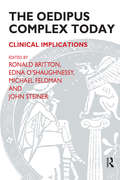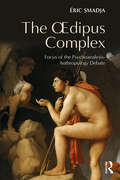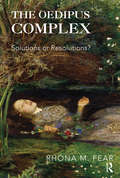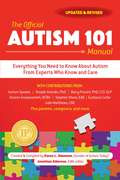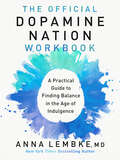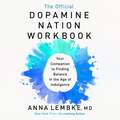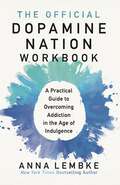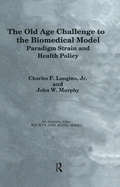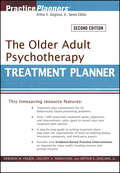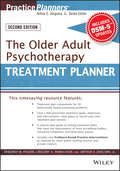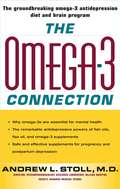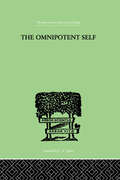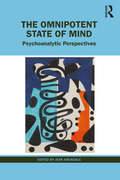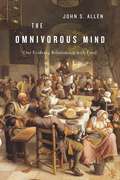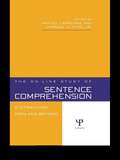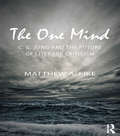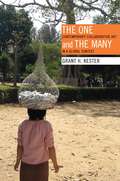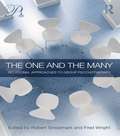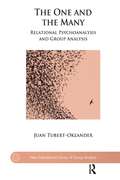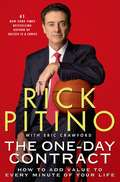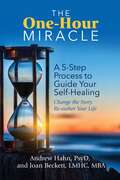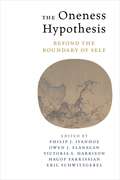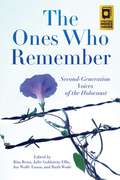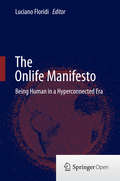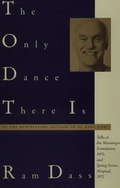- Table View
- List View
The Oedipus Complex Today: Clinical Implications
by Michael Feldman Ronald Britton Edna O'ShaughnessyA collection of papers focusing on the Kleinian conception of the Oedipus complex, how this is now understood, and what effect it has had on clinical practice. The papers by the authors which form the greater part of The Oedipus Complex Today were originally given at the Melanie Klein Conference on the Oedipus Complex in September 1987 at University College, London. The conference, jointly organized by Professor J. Sandler of the Psychoanalysis Unit at University College and Mrs. Ruth Riesenberg-Malcolm on behalf of the Melanie Klein Trust, was considered such a successful statement of modern Kleinian views on the subject that the Trust has decided to present the papers in book form, together with an expanded version of the introduction by Dr Hanna Segal, and also a reprint of Melanie Klein's 1945 paper 'The Oedipus Complex in the Light of Early Anxieties'.The three papers, writes Dr Segal, 'are based on central concepts first put forward by Mrs Klein.
The Oedipus Complex: Focus of the Psychoanalysis-Anthropology Debate
by Éric SmadjaThis book examines the contentious relationship between psychoanalysis and anthropology as it has played out in disputes surrounding the Oedipus complex. Here, Éric Smadja explores the complicated historical and epistemological conditions leading up to the emergence of the conflict between the two disciplines. He considers the origins of each science, the "creation" of the Oedipus complex, and the place, role and influence of Freud’s key and controversial work Totem and Taboo, both in the history of psychoanalysis and as it connects with anthropology internationally. Focusing on such key figures as Bronislaw Malinowski, Ernest Jones, Franz Boas, Georges Devereux, Emile Durkheim, Claude Levi-Strauss and Jacques Lacan, Smadja charts the course of the debate as it unfolded during the twentieth century and tracks its contemporary status of the debate, with a focus on figures in both France and the United States. Discussing the divergences and convergences between the two fields, he compares and contrasts their historical, epistemological and methodological features and reflects on the new "acculturative" disciplines emerging from their interaction. The book concludes with a look at what the conflictual history of these two human sciences can tell us about the history of ideas and their processes and modes of communication. Exploring a dispute which reaches back to the very beginnings of psychoanalysis and anthropology, The Oedipus Complex will appeal to psychoanalysts in practice and in training, psychotherapists and academics and students of psychoanalytic studies, anthropology and the history of ideas.
The Oedipus Complex: Solutions or Resolutions?
by Rhona M. FearFreud's theory of the Oedipus complex is seminal to psychoanalytic theory, but often ignored because of failure to appreciate the nuances. This book seeks to demystify this fascinating topic by exploring the theory in approachable language. In the early pages of the book the author takes us through Freud's gradual development of his theory and then moves the reader towards a different view as expressed by Melanie Klein. At the end of the first part of the book the author seeks to promulgate the thesis that there is a causal correlation between attachment theory and the Oedipus complex. In the later pages of the book the author draws on her personal experience of twenty-five years in practice as a psychoanalytic psychotherapist to present a number of case studies of patients, all of whom have suffered from an unresolved Oedipus complex. Each of these individuals had found a different temporary 'solution' to make life bearable prior to presenting in therapy, where a more permanent resolution could be worked upon.
The Official Autism 101 Manual: Everything You Need to Know About Autism From Experts Who Know and Care
by Karen L. SimmonsGold IPPY Award winner for Book of the Year, medicine category. When you need answers to your questions about anything related to autism, including early diagnosis, therapies, the buzz about vaccinations, social skills, self-esteem, planning for the future, coping skills, music therapy, or solving reading problems, this master collection gives you practical and proven answers. The Official Autism 101 Manual is the most comprehensive book ever written on the subject of autism. Parents and professionals rave that this is your ultimate resource for understanding and responding to autism. With forty-four contributors—such as Temple Grandin, Bernard Rimland, Pat Wyman, Tony Attwood, Darold Treffert, and more—you learn from dozens of caring experts and supporters who bring you the best the autism community has to offer.
The Official Dopamine Nation Workbook: A Practical Guide to Finding Balance in the Age of Indulgence
by Dr. Anna LembkeA practical companion to the New York Times and international bestseller Dopamine Nation, for individuals, families, counselors, therapists, teachers, and anyone who wants to go beyond the narrative and engage in practices that will reset reward pathways for a more flourishing life In Dopamine Nation, Dr. Lembke introduced readers to her groundbreaking research that demonstrates how abundance itself is a stressor, contributing to rising rates of addiction, depression, and anxiety. Since the book&’s publication, she has often been asked: When will there be a workbook helping people apply these ideas to their own lives? With her signature warm, authoritative voice, Dr. Lembke has written the workbook that her readers have been asking for. Full of interactive exercises and inspiring examples, the workbook helps readers identify the substances and behaviors they struggle to moderate, undertake a dopamine fast, and reset reward pathways for a happier and more fulfilling life.
The Official Dopamine Nation Workbook: A Practical Guide to Overcoming Addiction in the Age of Indulgence
by Dr Anna LembkeA practical companion to the international bestseller Dopamine Nation, for individuals, families, counsellors, teachers, and anyone who wants to go beyond the narrative and engage in practices that will reset reward pathways for a more flourishing life.In Dopamine Nation, Dr. Lembke introduced readers to her ground-breaking research that demonstrates how abundance itself is a stressor, contributing to rising rates of addiction, depression, and anxiety. Now, she's written the workbook that we've all been waiting for. Full of specific exercises, fill-in tables, and inspiring examples, readers will be able to more clearly identify the substances and behaviors they struggle to moderate. With the warm, authoritative voice we know and love, Dr. Lembke will share her valuable advice on how to undertake your own dopamine fast, reset your own pathways, and live a happier and more fulfilling life.Praise for Dopamine Nation:'Anna Lembke's stories of guiding people to find a healthy balance between pleasure and pain have the power to transform your life' - Lori Gottlieb, bestselling author of Maybe You Should Talk to Someone'Brilliant . . . riveting, scary, cogent, and cleverly argued. Lembke weaves patient stories with research, in a voice that's as empathetic as it is clear-eyed' - Beth Macy, bestselling author of Dopesick'Radically changes the way we think about mental illness, pleasure, pain, reward, and stress. Turn toward it. You'll be happy you did' - Daniel Levitin, bestselling author of The Organized Mind
The Official Dopamine Nation Workbook: A Practical Guide to Overcoming Addiction in the Age of Indulgence
by Dr Anna LembkeA practical companion to the international bestseller Dopamine Nation, for individuals, families, counsellors, teachers, and anyone who wants to go beyond the narrative and engage in practices that will reset reward pathways for a more flourishing life.In Dopamine Nation, Dr. Lembke introduced readers to her ground-breaking research that demonstrates how abundance itself is a stressor, contributing to rising rates of addiction, depression, and anxiety. Now, she's written the workbook that we've all been waiting for. Full of specific exercises, fill-in tables, and inspiring examples, readers will be able to more clearly identify the substances and behaviors they struggle to moderate. With the warm, authoritative voice we know and love, Dr. Lembke will share her valuable advice on how to undertake your own dopamine fast, reset your own pathways, and live a happier and more fulfilling life.Praise for Dopamine Nation:'Anna Lembke's stories of guiding people to find a healthy balance between pleasure and pain have the power to transform your life' - Lori Gottlieb, bestselling author of Maybe You Should Talk to Someone'Brilliant . . . riveting, scary, cogent, and cleverly argued. Lembke weaves patient stories with research, in a voice that's as empathetic as it is clear-eyed' - Beth Macy, bestselling author of Dopesick'Radically changes the way we think about mental illness, pleasure, pain, reward, and stress. Turn toward it. You'll be happy you did' - Daniel Levitin, bestselling author of The Organized Mind
The Old Age Challenge to the Biomedical Model: Paradigm Strain and Health Policy (Society and Aging Series)
by Charles F. LonginoCentral to this book is the idea that the United States is in the midst of a health care crisis, one that will be exacerbated as the population continues to age. Longino and Murphy trace the philosophical and technological development of the biomedical model and show its inadequacy to deal with the massive chronic disease demand of the present and the future. They argue that the delivery of health care will meet and survive the old age challenge only if the medical system is thoroughly democratized. A more inclusive system must be devised that encourages a more reasonable allocation of resources, gives more attention to prevention, adopts a wider range of non-medical interventions, and invites citizens to become more involved in their own health care and the planning of services.
The Older Adult Psychotherapy Treatment Planner
by Arthur E. Jongsma Jr. Gregory A. Hinrichsen Deborah W. FrazerThe Bestselling treatment planning system for mental health professionalsThe Older Adult Psychotherapy Treatment Planner, Second Edition provides all the elements necessary to quickly and easily develop formal treatment plans that satisfy the demands of HMOs, managed care companies, third-party payors, and state and federal agencies.New edition features empirically supported, evidence-based treatment interventionsOrganized around 30 behaviorally based presenting problems including depression, unresolved grief, life role transition, and substance abuseOver 1,000 prewritten treatment goals, objectives, and interventions--plus space to record your own treatment plan optionsEasy-to-use reference format helps locate treatment plan components by behavioral problemIncludes a sample treatment plan that conforms to the requirements of most third-party payors and accrediting agencies including CARF, The Joint Commission (TJC), COA, and the NCQA
The Older Adult Psychotherapy Treatment Planner, with DSM-5 Updates, 2nd Edition (PracticePlanners)
by Arthur E. Jongsma Jr. Gregory A. Hinrichsen Deborah W. FrazerThis timesaving resource features: Treatment plan components for 30 behaviorally based presenting problems Over 1,000 prewritten treatment goals, objectives, and interventions—plus space to record your own treatment plan options A step-by-step guide to writing treatment plans that meet the requirements of most accrediting bodies, insurance companies, and third-party payors Includes new Evidence-Based Practice Interventions as required by many public funding sources and private insurers PracticePlanners® THE BESTSELLING TREATMENT PLANNING SYSTEM FOR MENTAL HEALTH PROFESSIONALS The Older Adult Psychotherapy Treatment Planner, Second Edition provides all the elements necessary to quickly and easily develop formal treatment plans that satisfy the demands of HMOs, managed care companies, third-party payors, and state and federal agencies New edition features empirically supported, evidence-based treatment interventions Organized around 30 behaviorally based presenting problems including depression, unresolved grief, life role transition, and substance abuse Over 1,000 prewritten treatment goals, objectives, and interventions—plus space to record your own treatment plan options Easy-to-use reference format helps locate treatment plan components by behavioral problem Includes a sample treatment plan that conforms to the requirements of most third-party payors and accrediting agencies including CARF, The Joint Commission (TJC), COA, and the NCQA Additional resources in the PracticePlanners® series: Documentation Sourcebooks provide the forms and records that mental health??professionals need to??efficiently run their practice. Homework Planners feature behaviorally based, ready-to-use assignments to speed treatment and keep clients engaged between sessions. For more information on our PracticePlanners®, including our full line of Treatment Planners, visit us on the Web at: www.wiley.com/practiceplanners
The Omega-3 Connection
by Andrew StollFor years scientists have searched for a "magic bullet" to relieve the pain of depression and other mood disorders -- safe enough for nursing mothers, children with ADHD, and the elderly, without the side effects associated with medicines like Prozac, Zoloft, and lithium. Now the search may finally be over, thanks to the Omega-3 Renewal Plan, introduced here by Andrew L. Stoll, M.D., Director of the Psycho-pharmacology Research Laboratory at Harvard's McLean Hospital. In his groundbreaking research, Stoll found that omega-3 fatty acids, already known for their importance in preventing heart disease, Crohn's disease, rheumatoid arthritis, and cancer, play a crucial role in mental health -- regulating and en-hancing mood, sharpening memory, and even aiding concentration and learning. And these remarkable substances, so essential to our health, are found abundantly in common fish oils and other sources. The bad news is that even though omega-3 fatty acids have played a critical role in our evolutionary past, these extraordinary substances have been depleted by our Western diet and lifestyle, and the resulting nutritional imbalance seems to have led to a sharp rise in heart disease and depression. By contrast, in Japan and other countries where fish consumption is high, both heart disease and depression rates are low. Stoll explains how easily omega-3s can be used up in just a few generations, and how a new mother with depleted omega-3s loses still more to her baby -- a fact that may account for the severe postpartum depression so many women suffer. He documents evidence that a shortage of omega-3s may also play a role in attention deficit-hyperactivity disorder (ADHD) and other learning problems. The good news is that this downward spiral of depletion and depression can finally be reversed. In his revolutionary Omega-3 Renewal Plan, Dr. Stoll presents readers for the first time with all the tools for restoring their natural balance of omega-3 fatty acids, including which foods to eat and how to choose the most effective over-the-counter supplements. Featuring information on how to integrate flaxseed and fish oils into diet and medication plans, and including simple recipes as well as supplement dosages and sources, The Omega-3 Connection offers an entirely new, practical method for improving mental health.
The Omnipotent Self: A STUDY IN SELF-DECEPTION AND SELF-CURE
by Bousfield, PaulFirst Published in 1999. Routledge is an imprint of Taylor & Francis, an informa company.
The Omnipotent State of Mind: Psychoanalytic Perspectives
by Jean ArundaleThis book presents an examination and exploration of the concept of omnipotence, its qualities and expression as a psychic state, its origins in the psyche and its appearance in the psychoanalytic process and in society. Linked with narcissism but underdeveloped as a concept in its own right, omnipotence is explored in this book from a range of psychoanalytic perspectives, including its positive value in normal development through to its potential as a destructive element in the personality. The Omnipotent State of Mind is presented in five parts, each exploring a specific theme. The contributors explore omnipotence in infants, children, adolescents and adults, consider why it is so difficult to give up, and examine how the omnipotent state of mind is expressed in culture and society. The range of attitudes towards omnipotence within different psychoanalytic traditions is represented by the international selection of contributors. The Omnipotent State of Mind will be of great interest to psychoanalysts in practice and in training, to psychoanalytic psychotherapists and to other professionals interested in omnipotent states of mind.
The Omnivorous Mind: Our Evolving Relationship with Food
by John S. AllenIn this gustatory tour of human history, Allen suggests that the everyday activity of eating offers deep insights into our cultural and biological heritage. Beginning with the diets of our earliest ancestors, he explores eating's role in our evolving brain before considering our contemporary dinner plates and the preoccupations of foodies.
The On-line Study of Sentence Comprehension: Eyetracking, ERPs and Beyond
by Manuel Carreiras Charles Clifton, Jr.This book addresses important findings, assumptions, problems, hopes, and future guidelines on the use of advanced research techniques to study the moment-by-moment mental processes that occur while a reader or listener is understanding language. The core techniques are eye tracking and ERPs, with some extensions to others such as fMRI. The On-line Study of Sentence Comprehension has been written by top researchers in the field of psycholinguistics, who are also leading experts in the use of eye tracking and ERPs. This book combines comprehensive overviews of the state of the art on theoretical progress, the latest on assumptions behind the use of eye movements (reading and visual world) and ERPs methods with papers that address specific research questions. This work covers not only methodological issues but also discusses the theoretical progress in understanding language processing using temporally fine-grained methods.
The One Mind: C. G. Jung and the future of literary criticism
by Matthew A. FikeThe One Mind: C. G. Jung and the Future of Literary Criticism explores the implications of C. G. Jung's unus mundus by applying his writings on the metaphysical, the paranormal, and the quantum to literature. As Jung knew, everything is connected because of its participation in universal consciousness, which encompasses all that is, including the collective unconscious. Matthew A. Fike argues that this principle of unity enables an approach in which psychic functioning is both a subject and a means of discovery—psi phenomena evoke the connections among the physical world, the psyche, and the spiritual realm. Applying the tools of Jungian literary criticism in new ways by expanding their scope and methodology, Fike discusses the works of Hawthorne, Milton, Shakespeare, Wordsworth, and lesser-known writers in terms of issues from psychology, parapsychology, and physics. Topics include the case for monism over materialism, altered states of consciousness, types of psychic functioning, UFOs, synchronicity, and space-time relativity. The One Mind examines Goodman Brown's dream, Adam's vision in Paradise Lost, the dream sequence in "The Wanderer," the role of metaphor in Robert A. Monroe's metaphysical trilogy, Orfeo Angelucci's work on UFOs, and the stolen boat episode in Wordsworth's The Prelude. The book concludes with case studies on Robert Jordan and William Blake. Considered together, these readings bring us a significant step closer to a unity of psychology, science, and spirituality. The One Mind illustrates how Jung's writings contain the seeds of the future of literary criticism. Reaching beyond archetypal criticism and postmodern theoretical approaches to Jung, Fike proposes a new school of Jungian literary criticism based on the unitary world that underpins the collective unconscious. This book will appeal to scholars of C. G. Jung as well as students and readers with an interest in psychoanalysis, literature, literary theory, and the history of ideas.
The One and the Many: Contemporary Collaborative Art in a Global Context
by Grant H. KesterCollaborative and collective art practices have proliferated around the world over the past fifteen years. In The One and the Many, Grant H. Kester provides an overview of the broader continuum of collaborative art, ranging from the work of artists and groups widely celebrated in the mainstream art world, such as Thomas Hirschhorn, Superflex, Francis Als, and Santiago Sierra, to the less-publicized projects of groups, such as Park Fiction in Hamburg, Networking and Initiatives for Culture and the Arts in Myanmar, Ala Plastica in Argentina, Huit Facettes in Senegal, and Dialogue in central India. The work of these groups often overlaps with the activities of NGOs, activists, and urban planners. Kester argues that these parallels are symptomatic of an important transition in contemporary art practice, as conventional notions of aesthetic autonomy are being redefined and renegotiated. He describes a shift from a concept of art as something envisioned beforehand by the artist and placed before the viewer, to the concept of art as a process of reciprocal creative labor. The One and the Many presents a critical framework that addresses the new forms of agency and identity mobilized by the process of collaborative production.
The One and the Many: Relational Approaches to Group Psychotherapy (Psychoanalysis in a New Key Book Series)
by Robert Grossmark Fred WrightThe One and the Many: Relational Approaches to Group Psychotherapy applies advances in relational psychoanalysis to the theory and practice of group psychotherapy. In this volume Robert Grossmark and Fred Wright bring together leading writers in the group psychotherapy field, both psychoanalysts and group therapists, who have integrated ideas from contemporary relational psychoanalysis. Together, they constitute a vibrant and dynamic new wave in group psychotherapy and psychoanalysis that challenge much accepted wisdom and practice in the field, including classic group psychotherapy ideas regarding the therapist’s role, the group-as-a-whole and unconscious processes in group. In this book, Grossmark and Wright show how the development of relational psychoanalysis has had a transformative impact on the field of psychoanalysis that has reverberated in the group psychotherapy world. The contributors illustrate how the broadening scope of the contemporary relational scene offers much that coheres with and amplifies the theory and practice of group treatment. The focus on dissociation, enactment, trauma, mutuality and intersubjectivity in the clinical setting, the foregrounding of sub-symbolic communication and implicit relational knowing, the registration of mutual containment and mutual regulation, all open new and exciting vistas for understanding the process and healing properties of group treatment. The One and The Many expands the theory and practice of group psychotherapy offering innovative and refreshing ways to understand group interaction and to formulate interventions in both large and small groups. This book will be of interest and practical help to all who practice group psychotherapy, group process, psychoanalysis and psychotherapy in general, including all mental health practitioners, psychoanalysts, psychotherapists, psychiatrists, social workers, counsellors and pastoral counsellors.
The One and the Many: Relational Psychoanalysis and Group Analysis (The New International Library of Group Analysis)
by Juan Tubert-OklanderThis book presents a selection of papers on the subjects of Relational Analysis and Group Analysis, written in the ten-year period that goes from 2002 to 2012. It deals with the problems of interpretation from the hermeneutic, psychoanalytic, and group-analytic points of view.
The One-Day Contract: How to Add Value to Every Minute of Your Life
by Rick Pitino Eric CrawfordA life-changing guide to achieving your goals, by the 2013 NCAA champion college basketball coach and #1 New York Times bestselling author. Rick Pitino is famous as one of the most dynamic and successful basketball coaches of our time, leading the University of Louisville Cardinals to the NCAA basketball championship in 2013, and is renowned for writing the #1 New York Times bestselling success and leadership book, Success is a Choice. In his new book, The One-Day Contract, Pitino details his key to success, on the court and in life: to focus on making the most of each day, by creating a contract with yourself. Coach Pitino was able to turn Louisville into NCAA champions by applying this idea to everything he and the team did--every practice, every recruiting visit, every game preparation, every scouting report, every instruction that he gave players and coaches, and everything he did himself. Each day became just as important as reaching the national championship, and so, by honoring the one-day contract, he and Louisville moved through adversity toward their goal. In this inspiring and practical guide, Coach Rick Pitino illustrates how to set your own one-day contract, and follow through to honor it for each day, each goal, and each interaction with another person. Pitino shows how to: Establish focus as a discipline in everything you do: planning, strategy, priorities, and career advancement. Discover the true key to success: not ambition, not wealth, not power, but humility. Use technology wisely--but don't let it replace personal connection with the people you work and live with. Own up to your problems, tell the truth and they will become part of your past. Lie and they become part of your future. Make small changes and add value to every minute of your life. The One-Day Contract will reshape the way you approach your job, your goals, and your life.
The One-Hour Miracle: A 5-Step Process to Guide Your Self-Healing: Change the Story, Re-author Your Life
by Andrew Hahn Joan BeckettA revolutionary healing framework that is a blueprint for transforming most problems, ranging from the most pedestrian to the most treatment resistant. And sometimes, the transformation simply takes one hour.The One-Hour Miracle: A 5-Step Process to Guide Your Self-Healing presents the revolutionary Life-Centered Therapy (LCT), a healing framework that is a blueprint for transforming most problems--physical (such as chronic pain, asthma, addictions), emtional and mental (including depresssion, PTSD, OCD, paranoia) relational (releasing destructive patterns), and spiritual (alienation, despair, inertia), And sometimes, the transformation simply takes one hour. Filled with testimonials of real-life people who have benefitted from this approach when other attempts to end their suffering turned up fruitless, it provides people with an entirely new way of understanding their suffering, giving them inspiration and hope that they can create miracles in their lives. The One-Hour Miracle includes a protocol that allows people to facilitate this process on their own by finding the root cause of their suffering and shifting it. This framework helps them live engaged lives of freedom, peace, joy, wisdom, and vitality. In the book, co-authors Andrew Hahn, PsyD, and Joan Beckett, LMHC, will teach readers how to do this work for themselves and others. With step-by-step instructions, readers are led through a five-step process, an integration of mindfulness and body-centered therapy, that guides them through their own self-healing practices and how to do them. In addition, therapists who are reading the book will have enough information to immediately start using the approach with clients without needing more training
The Oneness Hypothesis: Beyond the Boundary of Self
by Stephen R. Clark Michael R. Slater Mark Unno Jay L. Garfield Lawrence Blum Tao Jiang Justin Tiwald Victoria Harrison Eva Feder Kittay Donald L. Baxter Bradford Cokelet Kendy M. Hess Cho Geung Ho Shaun Nichols Dimitri Putilin Nina Strohminger William B. Swann Jr. Sanaz TalaifarThe idea that the self is inextricably intertwined with the rest of the world—the “oneness hypothesis”—can be found in many of the world’s philosophical and religious traditions. Oneness provides ways to imagine and achieve a more expansive conception of the self as fundamentally connected with other people, creatures, and things. Such views present profound challenges to Western hyperindividualism and its excessive concern with self-interest and tendency toward self-centered behavior.This anthology presents a wide-ranging, interdisciplinary exploration of the nature and implications of the oneness hypothesis. While fundamentally inspired by East and South Asian traditions, in which such a view is often critical to their philosophical approach, this collection also draws upon religious studies, psychology, and Western philosophy, as well as sociology, evolutionary theory, and cognitive neuroscience. Contributors trace the oneness hypothesis through the works of East Asian and Western schools, including Confucianism, Mohism, Daoism, Buddhism, and Platonism and such thinkers as Zhuangzi, Kant, James, and Dewey. They intervene in debates over ethics, cultural difference, identity, group solidarity, and the positive and negative implications of metaphors of organic unity. Challenging dominant views that presume that the proper scope of the mind stops at the boundaries of skin and skull, The Oneness Hypothesis shows that a more relational conception of the self is not only consistent with contemporary science but has the potential to lead to greater happiness and well-being for both individuals and the larger wholes of which they are parts.
The Ones Who Remember: Second-Generation Voices of the Holocaust
by Rita Benn;Julie Goldstein Ellis;Joy Wolfe Ensor;Ruth WadeHow do you talk about and make sense of your life when you grew up with parents who survived the most unimaginable horrors of family separation, systematic murder and unending encounters of inhumanity? Sixteen authors reveal the challenges and gifts of living with the aftermath of their parents&’ inconceivable experiences during the Holocaust.The Ones Who Remember: Second-Generation Voices of the Holocaust provides a window into the lived experience of sixteen different families grappling with the legacy of genocide. Each author reveals the many ways their parents&’ Holocaust traumas and survival seeped into their souls and then affected their subsequent family lives – whether they knew the bulk of their parents&’ stories or nothing at all. Several of the contributors&’ children share interpretations of the continuing effects of this legacy with their own poems and creative prose. Despite the diversity of each family's history and journey of discovery, the intimacy of the collective narratives reveals a common arc from suffering to resilience, across the three generations. This book offers a vision of a shared humanity against the background of inherited trauma that is relatable to anyone who grew up in the shadow of their parents&’ pain.
The Onlife Manifesto
by Luciano FloridiWhat is the impact of information and communication technologies (ICTs) on the human condition? In order to address this question, in 2012 the European Commission organized a research project entitled The Onlife Initiative: concept reengineering for rethinking societal concerns in the digital transition. This volume collects the work of the Onlife Initiative. It explores how the development and widespread use of ICTs have a radical impact on the human condition. ICTs are not mere tools but rather social forces that are increasingly affecting our self-conception (who we are), our mutual interactions (how we socialise); our conception of reality (our metaphysics); and our interactions with reality (our agency). In each case, ICTs have a huge ethical, legal, and political significance, yet one with which we have begun to come to terms only recently. The impact exercised by ICTs is due to at least four major transformations: the blurring of the distinction between reality and virtuality; the blurring of the distinction between human, machine and nature; the reversal from information scarcity to information abundance; and the shift from the primacy of stand-alone things, properties, and binary relations, to the primacy of interactions, processes and networks. Such transformations are testing the foundations of our conceptual frameworks. Our current conceptual toolbox is no longer fitted to address new ICT-related challenges. This is not only a problem in itself. It is also a risk, because the lack of a clear understanding of our present time may easily lead to negative projections about the future. The goal of The Manifesto, and of the whole book that contextualises, is therefore that of contributing to the update of our philosophy. It is a constructive goal. The book is meant to be a positive contribution to rethinking the philosophy on which policies are built in a hyperconnected world, so that we may have a better chance of understanding our ICT-related problems and solving them satisfactorily. The Manifesto launches an open debate on the impacts of ICTs on public spaces, politics and societal expectations toward policymaking in the Digital Agenda for Europe's remit. More broadly, it helps start a reflection on the way in which a hyperconnected world calls for rethinking the referential frameworks on which policies are built.
The Only Dance There Is
by Ram DassThis book is based on talks by Ram Dass at the Menninger Foundation in 1970 and at the Spring Grove Hospital in Maryland in 1972. The text grew out of the interaction between Ram Dass and the spiritual seekers in attendance at these talks. The result of this unique exchange is a useful guide for understanding the nature of consciousness--useful both to other spiritual seekers and to formally trained psychologists. It is also a celebration of the Dance of Life--which, in the words of Ram Dass, is the "only dance there is."From the Trade Paperback edition.
